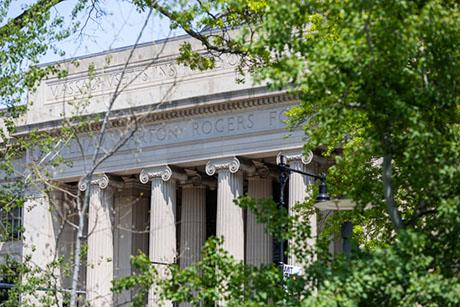MIT graduate engineering, business, science programs ranked highly by U.S. News for 2019
MIT’s graduate program in engineering has again earned a No. 1 spot in U.S. News and Word Report’s annual rankings, a place it has held since 1990, when the magazine first ranked such programs.
The MIT Sloan School of Management also placed highly, occupying the No. 5 spot for the best graduate business program.
This year, U.S. News also ranked the nation’s top PhD programs in the sciences, which it last evaluated in 2014. The magazine awarded No. 1 spots to MIT programs in biology (tied with Stanford University and the University of California at Berkeley), computer science (tied with Carnegie Mellon University, Stanford, and Berkeley), and physics (tied with Stanford). No. 2 spots went to MIT programs in chemistry (tied with Harvard University, Stanford, and Berkeley), earth sciences (tied with Stanford and Berkeley); and mathematics (tied with Harvard, Stanford, and Berkeley).
Among individual engineering disciplines, MIT placed first in six areas: aerospace/aeronautical/astronautical engineering (tied with Caltech), chemical engineering, computer engineering, electrical/electronic/communications engineering (tied with Stanford and Berkeley), materials engineering, and mechanical engineering. It placed second in nuclear engineering.
In the rankings of individual MBA specialties, MIT placed first in information systems and production/operations. It placed second in supply chain/logistics and third in entrepreneurship.
U.S. News does not issue annual rankings for all doctoral programs but revisits many every few years. This year, MIT ranked in the top five for 24 of the 37 science disciplines evaluated.
The magazine bases its rankings of graduate schools of engineering and business on two types of data: reputational surveys of deans and other academic officials, and statistical indicators that measure the quality of a school’s faculty, research, and students. The magazine’s less-frequent rankings of programs in the sciences, social sciences, and humanities are based solely on reputational surveys.
